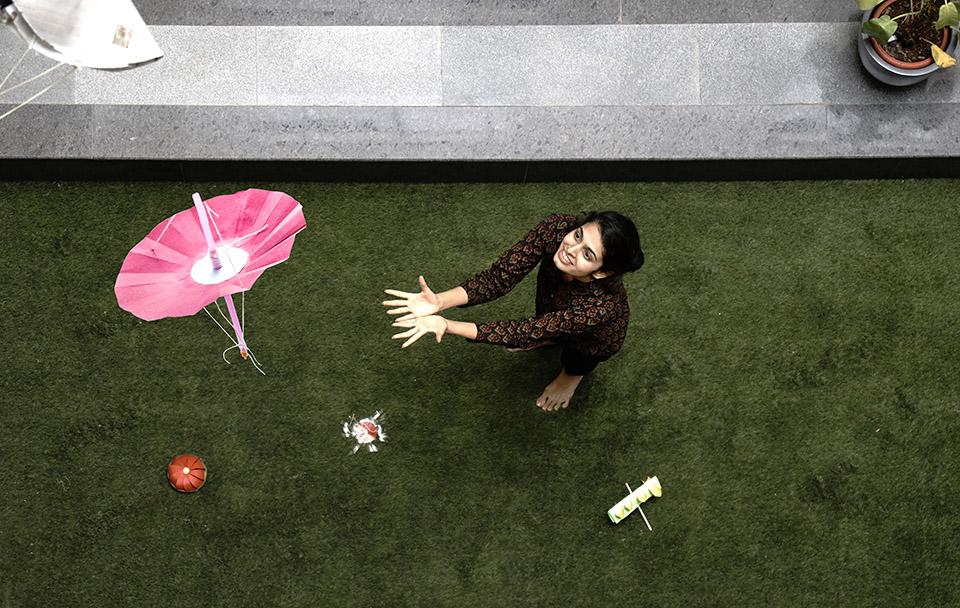
Picture Credits: Srishti Institute, Ajith Samuel
Research is not artistic when or even only when it is carried out by artists (as helpful as their participation may often be) but rather earns the attribute “artistic” – no matter where, when or from whom it was undertaken – on its specific quality: the mode of artistic experience. - Julian Klein—”What is Artistic Research?
“Poetic language that knows itself as such doesn't contradict reason. On the contrary, it reminds each speaking subject not to take the narrative of his mind's adventures for the voice of truth.” - Jacques Rancière—Ignorant School Master: Five Lessons in Intellectual Emancipation
Vision
Knowledge and understanding about experiences, situations, contexts or phenomena are gained iteratively through lived experience, reflective and retrospective documentation and insights gained through processes of analysis of the experience and its synthesis as reflections. Practitioners come to this process in ways that are integral to their practice. Scientists do this in labs or in the field, an artist in a studio and an engineer in a workshop. Their practice is critical to the emergence of insight and when there is a realisation that a barrier has been breached and a new and exciting field of knowledge emerges it gets formally codified as episteme, within which explorations, experimentations and theory are constructed.
The key driver of the doctoral programme at Srishti Manipal and one that differentiates it from others is this location of the research within the primary lived experience and interests of an everyday practitioner.
Mission
The 3 year Doctoral Programme at Srishti Manipal provides opportunities for both the novice and the more experienced practitioner to build a research proposal around ideas that can be supported through interactions and immersion into a community of creatives. The mission of the Programme is to broaden the field of vision, develop new ways to look at the not-so-new contexts and build with confidence a body of work that engages dynamically with theoretical perspectives.
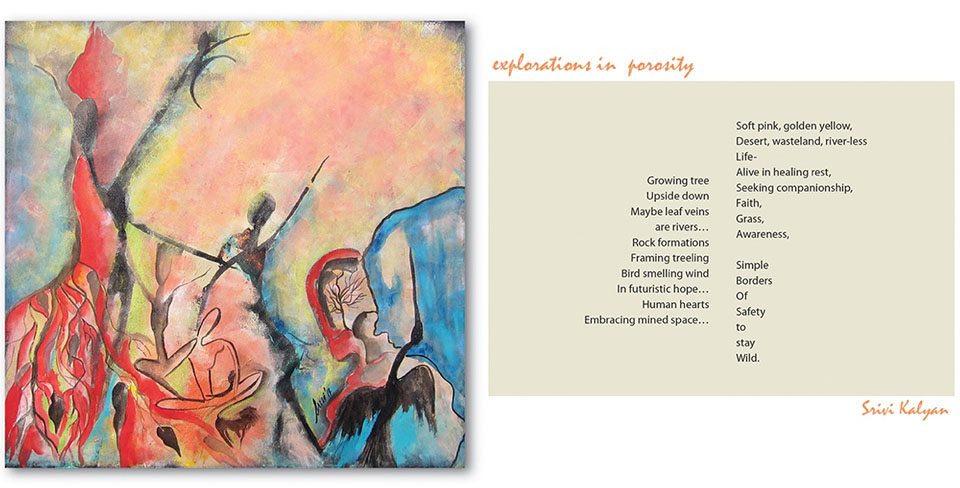
Advanced Studies and Practice:
Srishti Manipal has Interdisciplinary and Transdisciplinary Studies located within the Field of Advanced Studies and Practice. A wide range of practitioners work within this field at the undergraduate, postgraduate and doctoral levels of study. Please click on the links below which will give more details.
Design, Business and Technology (DBT)
New Humanities (NH)
Law, Environment and Planning (LEP)
Focus Areas for Doctoral Research
The 3-year Doctoral Program is structured in five major areas of interdisciplinary or transdisciplinary focus or inquiry. The themes are deliberatively generative providing thereby a space for a wide range of creative practitioners to develop their lines of inquiry. These generative themes are not intended to be watertight compartments but rather serve to provide a disciplinary root as well as frameworks and methodologies consistent with the major area of competence. Further, the research areas aim not only to deepen practice but also to understand practice as research. The major fields of research are:
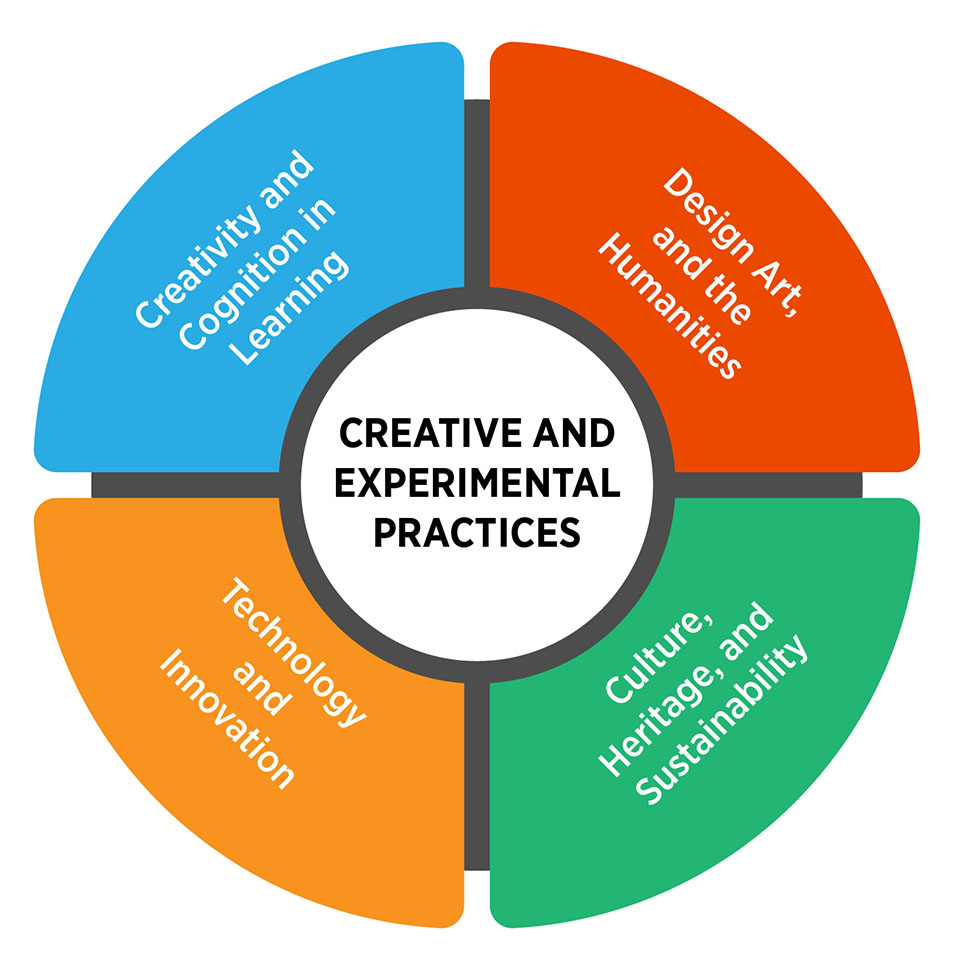
Creative and Experimental Practices: This is the core of research-based, theoretically informed artistic and creative productions. The aim is to contextualize creative work and support reflection on practice. The final output would be a documented and theoretically grounded artistic research project.
Design, Art, and the Humanities: Research in this area focuses on historical and contemporary knowledge of design and art, theoretical and philosophical considerations including aesthetic and formal theories, cultural studies, gender studies, literature and translation studies relevant to any field of art and design, or criticism and writing of design and art.
Creativity and Cognition in Learning: Research in this area would add to art and design pedagogy, as well as art, design, and methodologies of communication and curation. It would contribute to the application of design thinking to education and pedagogical innovations in education in art, design, and creative practices.
Culture, Heritage, and Sustainability: Research in this area involves contributions to knowledge and methods of design that are responsive to and compatible with a place, local culture, and its heritage. This includes research on crafts and traditional practices, urban and rural environments, heritage conservation and management.
Technology and Innovation: Research in this area would contribute to the application of design to the frontiers of science and technology and to the application of innovations in science and technology to furthering design forms and knowledge. This area would include research from health and wellness, to nanotechnology, design of industrial products, and interactive and digital media. Methodologies would be rooted in experimental sciences and engineering
Program Structure
The doctoral program normally takes 3-6 years to complete and involves three different stages after the admission into the program.
Course Work: The doctoral scholars are required to complete course work that includes, a course on research methodology and research ethics. Based on a scholar’s preparedness, the research committee can recommend additional course work beyond the mandatory.
Proposal and Doctoral Advisory Committee (DAC): Scholars choose a PhD guide among the certified faculty and form a DAC with two additional members. The guide and the DAC members mentor the scholar in developing a research proposal that must be formally defended and approved.
Research and Thesis: After the formal approval of the PhD proposal scholars engage in research / practice working closely with their guide and DAC. At the end of the research period the output of research undergoes rigorous examination by an internal committee and external examiners. Scholars who successfully fulfilled requirements will be awarded PhD degree.
Academic Publications and Events
Doctoral scholars have several opportunities at Srishti to publish, participate in critical discussions and debates for advancing research and scholarship. There are several events and forums that bring together artists, designers and scholars to engage in a dialogue to generate new ideas, concepts and approaches.
Publications
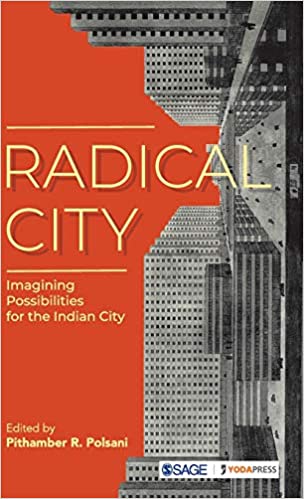 Radical City:
Radical City:
Imagining Possibilities for an Indian City.
Ed. Pithamber Rao Polsani
New Delhi: Sage Yoda Press, 2021
It argues that we should urgently reflect on the question raised by the luminaries of Congrès Internationaux d'Architecture Moderne (CIAM) nearly a century back, 'Should our cities survive?', because the Functional City—a conglomeration with differentiated zones of activity and transportation of people and materials between the zones—invented by CIAM has outlived its usefulness. Rethinking the city, therefore, cannot be the province of planners and technocrats alone. Instead, this book brings together artists, architects, writers, poets, designers, urban planners, social scientists, humanists and others to think about the city and its possibilities.

Unbound: A Journal of Discourse and Creative Practices is published through the electronic medium, 3 times a year. Unbound aims to break out of traditional disciplinary territories and boundaries considered self-evident markers of knowledge, by giving expression to ideas and everyday practices that operate simultaneously on contiguous, and often, overlapping domains.

Conference on Research in Art, Design and Culture, Picture Credits: Srishti Institute, Ajith Samuel
Events
Conference on Research in Art, Design and Culture, which is an annual event, is held in the third week of December. With a new theme every year, the conference attracts scholars, artists, and designers from all over the world. Selected contributions to the conference are normally published as an edited volume with reputed publishers.
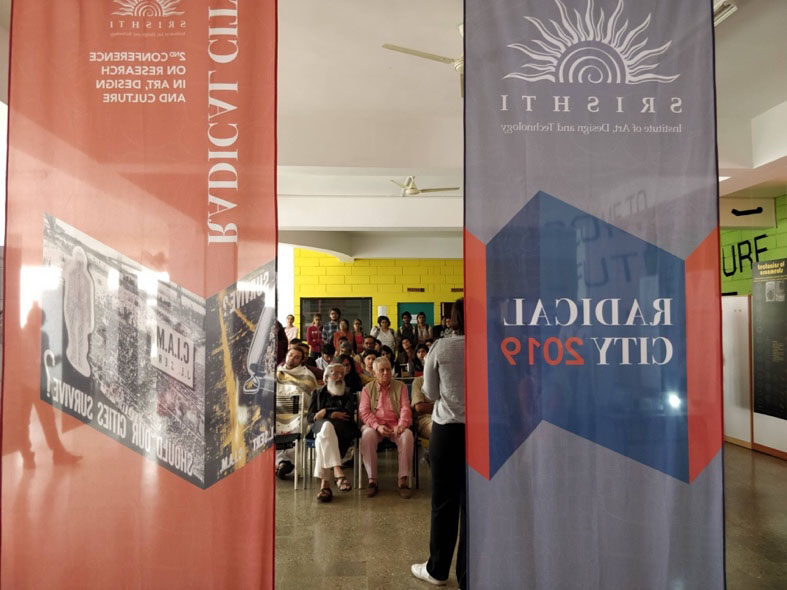
Conference on Research in Art, Design and Culture, Picture Credits: Srishti Institute, Ajith Samuel
Graduate Symposium, which is held once a year, offers a public forum for doctoral scholars to present their ongoing research and receive feedback from peers and experts in the field.
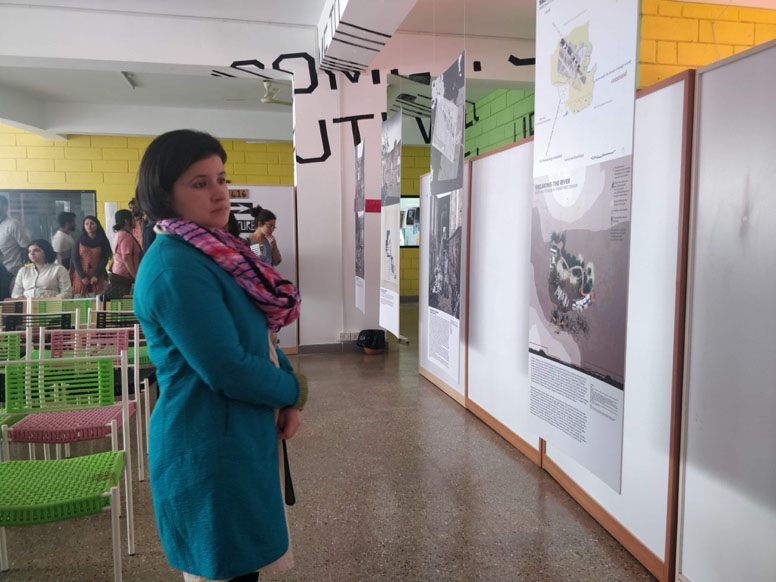
Conference on Research in Art, Design and Culture, Picture Credits: Srishti Institute, Ajith Samuel
Srishti Colloquium, a fortnightly forum, mainly for Srishti faculty to share their work, ongoing research and work in progress. From time to time Srishti Colloquium also hosts educators, artists, designers and researchers from outside Srishti.
